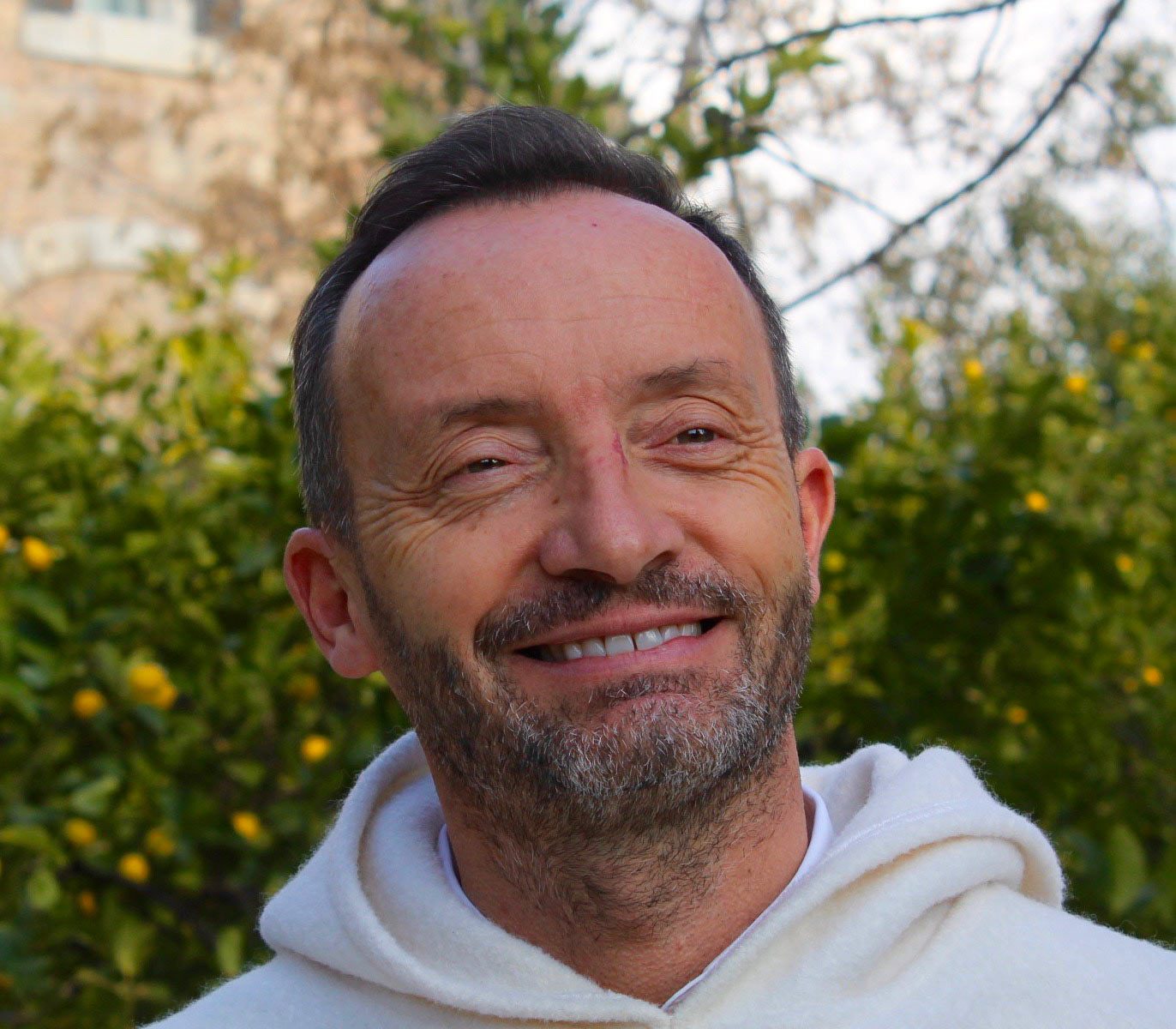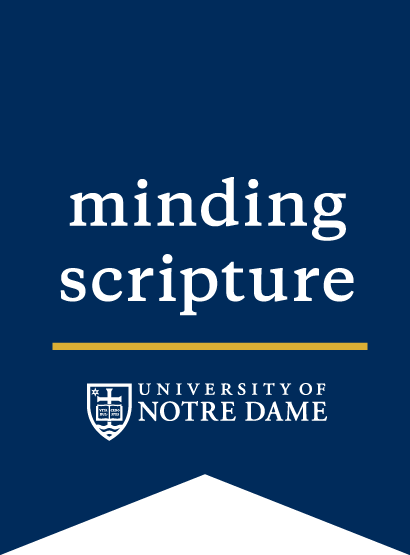Show Notes
Fr. Olivier-Thomas Venard, Dominican priest and professor at the École Biblique in Jerusalem, joins Francesca Murphy and Gabriel Reynolds for this episode of Minding Scripture. Fr. Venard bridges intellectual worlds—modern French literature, the philosophy and theology of Thomas Aquinas, biblical archaeology and historical-critical study of the Bible, literary theory and linguistics—and finds their convergence in the words of Scripture. Selections from his monumental trilogy, an exploration of a “theology of language” in modern French poetry, in the Bible, and in the “poet-theologian” Thomas Aquinas, appeared in a single English volume in 2019, elegantly translated by our own Francesca Murphy and Notre Dame colleague Kenneth Oakes (A Poetic Christ: Thomist Reflections on Scripture, Language, and Reality, T&T Clark, 2019).
Our conversation is as eclectic as Fr. Venard’s oeuvre. We begin with a discussion of Fr. Venard’s trilogy, including his tour de force reading of the great scholastic theologian, Thomas Aquinas, as a poetic thinker, considering especially Thomas’s relationship to the word “God,” and the liturgical, communal place of the Bible. We go on to consider the Gospel portrayal of Jesus’ crucifixion as his “exaltation” or enthronement in glory, its context in common imperial Roman speech and practice around crucifixion, and the early Christian interpretation of the cross as a source, not only of horror, but of enlightenment and life. Fr. Venard weighs in on a topic of central concern to our podcast: Is Christianity a form of Judaism? Do Christians and Jews read the same Scriptures? How can we understand Christianity as a form of Second Temple Judaism?
Fr. Venard also discusses a major, long-term project he directs at the École Biblique: “The Bible in its Traditions,” a presentation of the biblical text in its polyphony of different textual versions, translations, interpretations, and artistic receptions. The project, Fr. Venard says, should remind us that the Bible has never been some object “out there,” but has always been the text handed down by flesh and blood human beings, in multiple versions, in a history of ritual, artistic, and ecclesial life. Although there is a biblical canon, there is no single, or original, version of biblical texts. To hear the Word of God, we have to hear the polyphony of these many versions.
Fr. Venard began his higher studies in modern French literature at the École normale supérieure before discerning a vocation as a Dominican friar. He submitted his trilogy,Thomas d’Aquin, poète-théologien, as his PhD thesis at the Sorbonne before beginning his Dominican formation, which included a bachelor and a doctorate in theology. He has taught at the École Biblique since 2007.
Further Reading
The Bible and Its Traditions:
- Sample volumes
- Database in progress
- Hosea: The Word of the Lord that Happened to Hosea (Peeters, 2017).
Fr. Venard’s trilogy,Thomas d’Aquin, poète-théologien:
- In English: A Poetic Christ: Thomist Reflections on Scripture, Language, and Reality, translated by Francesca Murphy and Kenneth Oakes, T&T Clark, 2019.
- Vol. 1, Littérature et théologie: une saison en enfer, with a preface by Alain Michel, Ad solem, 2003.
- Vol. 2, La langue de l’ineffable. Le fondement théologique de la métaphysique, with a preface by David Burrell, Ad solem, 2004.
- Vol. 3, Pagina sacra. Le passage de l’Écriture sainte à l’écriture théologique, with a postscript by John Milbank, Ad solem / Cerf, 2009.
Olivier-Thomas Venard, O.P., Terre de Dieu et des hommes: écrits de Jérusalem, 2000-2012, Perpignan, 2012.
Olivier-Thomas Venard, Dieu a parlé une fois. Deux fois j’ai entendu, Parole SIlence, 2016.
Olivier-Thomas Venard, O.P., L’horreur et la splendeur: Histoire et sens de la Crucifixion (Forthcoming)
Featured Guest

Fr. Venard is professor of New Testament at the École Biblique in Jerusalem and director of the Bible in Its Traditions research program, a new kind of annotated Bible which puts historical study of the scriptures in dialogue with their rich variety of interpretations over the centuries. His research focuses on the relationship between scripture, literature, and theology.
Fr. Olivier-Thomas Venard
éCOLE BIBLIQUE, jERUSALEM
IMAGE CREDIT: Paleo-Hebrew Leviticus Scroll from Qumran Cave, Israel Antiquities Authority, Jerusalem.
